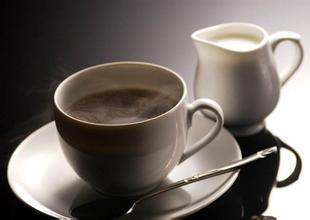Recollection: McDonald's Coffee compensation case
It is chilly in spring in Albuquerque, New Mexico, on February 27, 1992. A car drove past McDonald's and bought a cup of hot coffee worth 49 cents. Lieboke, a 79-year-old woman, sat in a Ford probe sports car and asked her grandson to stop and add some milk powder and sugar. The car had just stopped when the old man accidentally missed. With a scream, the whole cup of hot coffee was spilled between the old lady's legs.
Sent to the hospital, the old man's inner thigh was severely scalded. The area of "third-degree scald" accounted for 6% of the skin of the whole body, and the area of mild scald was as high as 16%. After eight days of skin grafting, Lieboke walked through the ghost gate and suddenly lost 9 kilograms of weight, leaving only 38 kilograms. There are still two years of long follow-up treatment waiting for her.
McDonald's coffee is incredibly hot and far hotter than its peers. The old man's skin is as delicate and fragile as a baby, plus it happens to be the most sensitive part of the body between the legs. Unfortunately, the elderly wearing thin cloth trousers, in a hurry, it is difficult to quickly untie the heat, resulting in the most serious "hot water bag" scald effect.
Lieboke's daughter was determined to ask for justice and asked McDonald's to pay $20,000 in compensation. McDonald's only agreed to pay $800.
Furious, Liebock's family turned to Morgan, a Texas lawyer who specializes in tort law, to sue. Morgan's lawyer filed a complaint listing the quality defects of hot coffee, endangering personal safety and causing a major accident, which led to the loss of beauty-loving old ladies from the skirt and asked McDonald's to pay huge spiritual compensation.
At first, the first reaction of the media and the public was that the case was ridiculous and absurd. The plaintiff was vexatious for money. On August 8, 1994, the New Mexico State Court officially opened. During the trial, the lawyer successively presented the doctor's diagnosis report and the scrawny photos of the victim's injury.
Morgan's lawyer stressed that the coffee sold by McDonald's is unusually hot and surprisingly hot compared with its competitors. After a survey, Americans drink coffee at home at temperatures between 70 and 75 degrees Celsius, including the famous Starbucks. Only McDonald's insists on having its own way, selling coffee at temperatures as high as 82 to 86 degrees Celsius, about ten degrees higher than its peers! Scald experts with detailed scientific data show that such a high temperature in direct contact with the human body, in 2 to 7 seconds will cause serious scald.
McDonald's executives argue: "according to coffee experts, coffee tastes best when mixed with 96 degrees of hot water and tastes best when drunk between 82 and 86 degrees." Morgan's lawyer asked repeatedly: "in addition to consulting coffee experts, has McDonald's consulted burn experts from the perspective of customer safety?" The boss of McDonald's thought for a long time and squeezed out a sentence: "No." As soon as this remark came out, there was a lot of discussion in court.
Lawyer Morgan immediately asked: "knowing that the coffee is hot, but greedy for cost savings, the use of cheap disposable paper cups is very easy to accidentally miss, leading to accidents." There is no warning on the cup of unprepared consumers hot drinks, beware of scalding. McDonald's cannot absolve itself of the blame. "
Seeing that the situation was not good, the defendant's lawyer hurriedly stressed: "Hot coffee spilled on the body will cause serious burns, which belongs to the most basic common sense and does not require special warning." McDonald's sells an average of 1 billion cups of coffee a year. Among the scald complaints over the past 10 years, there are only just over 700, with an average of 7 scalds. The accident rate is only 0.000007%, which is totally negligible. "
In this regard, Morgan hit the nail on the head: "this statement seems reasonable, but in fact it is not." Behind the figure of zero accident rate is the sad experience of more than 700 consumers who were badly scalded but had no way to seek help. In this way, burns are common in McDonald's. In common sense, most of the victimized customers are miserable and admit that they are unlucky. The number of complaints counted by McDonald's is only the tip of the iceberg. How terrible it is! "
Legally speaking, McDonald's is the owner of fast food restaurants and has the responsibility and obligation to provide protection to customers. McDonald's should be held legally responsible for the high temperature of coffee, the existence of product defects, and without prior warning, resulting in physical injury and property damage to customers. The United States has always attached importance to the personal safety of consumers. After winning the lawsuit, the plaintiff can not only get actual damages, but also have the right to mental damages and punitive damages.
In the end, the jury unanimously ruled that the coffee sold by McDonald's was too hot to be necessary, and that it was negligent and negligent on the issue of product safety, infringing upon the personal safety of the plaintiff, causing major injury accidents and economic losses, and reimbursing the plaintiff $200000 in compensation. Considering the plaintiff's own fault, McDonald's actual liability was reduced to 80% and compensation of $160000. However, in view of McDonald's bad attitude and no sympathy for consumers, it was fined $2.7 million in punitive damages.
McDonald's decided to appeal after the verdict of first instance in the sky-high compensation case was announced. After several setbacks, he finally reached an out-of-court settlement with the plaintiff. Insiders disclosed that McDonald's paid the plaintiff more than 600,000 US dollars, with the proviso that the plaintiff must remain silent and not disclose the inside story of the settlement, damaging McDonald's business reputation and image. At this point, the dust of the McDonald's coffee case has been settled, and the temperature of McDonald's coffee has been lowered all over the world.

Important Notice :
前街咖啡 FrontStreet Coffee has moved to new addredd:
FrontStreet Coffee Address: 315,Donghua East Road,GuangZhou
Tel:020 38364473
- Prev

Green Mountain Coffee fell short of expectations in the fourth quarter, and its share price tumbled 36%.
Shares of Green Mountain Coffee Roasters (GMCR) fell 36% in early trading on Thursday as fourth-quarter revenue fell short of wall street analysts' expectations. Green Mountain Coffee today released its fourth quarter results. According to the report, sales of Green Mountain Coffee in the fourth quarter were $712 million, an increase of 91% over the same period last year.
- Next

The Free Trade Agreement between China and Costa Rica will enter into force on August 1
After friendly consultation and written confirmation, the China-Costa Rica Free Trade Agreement entered into force on the same day. In the field of trade in goods, China and Colombia will implement zero tariff on more than 90% of their products in stages. According to the agreement, China's textile raw materials and products, light industry, machinery, electrical equipment, vegetables, fruits, automobiles, chemicals, raw fur and leather and other products and Costa Rica
Related
- Can lightly roasted coffee beans be used to extract espresso? How finely should you grind high-quality coffee beans to make Italian latte?
- What is the difference between the world's top rose summer coffee and Yejia Shefi? What are the flavor characteristics of Yega Shefi coffee and Panama rose summer?
- The ceremony is full! Starbucks starts to cut the ribbon at a complimentary coffee station?!
- A whole Michelin meal?! Lucky launches the new "Small Butter Apple Crispy Latte"
- Three tips for adjusting espresso on rainy days! Quickly find the right water temperature, powder, and grinding ratio for espresso!
- How much hot water does it take to brew hanging ear coffee? How does it taste best? Can hot water from the water dispenser be used to make ear drip coffee?
- What grade does Jamaica Blue Mountain No. 1 coffee belong to and how to drink it better? What is the highest grade of Blue Mountain coffee for coffee aristocrats?
- What are the flavor characteristics of the world-famous coffee Blue Mountain No. 1 Golden Mantelin? What are the characteristics of deep-roasted bitter coffee?
- Can I make coffee a second time in an Italian hand-brewed mocha pot? Why can't coffee be brewed several times like tea leaves?
- Hand-brewed coffee flows with a knife and a tornado. How to brew it? What is the proportion of grinding water and water temperature divided into?

